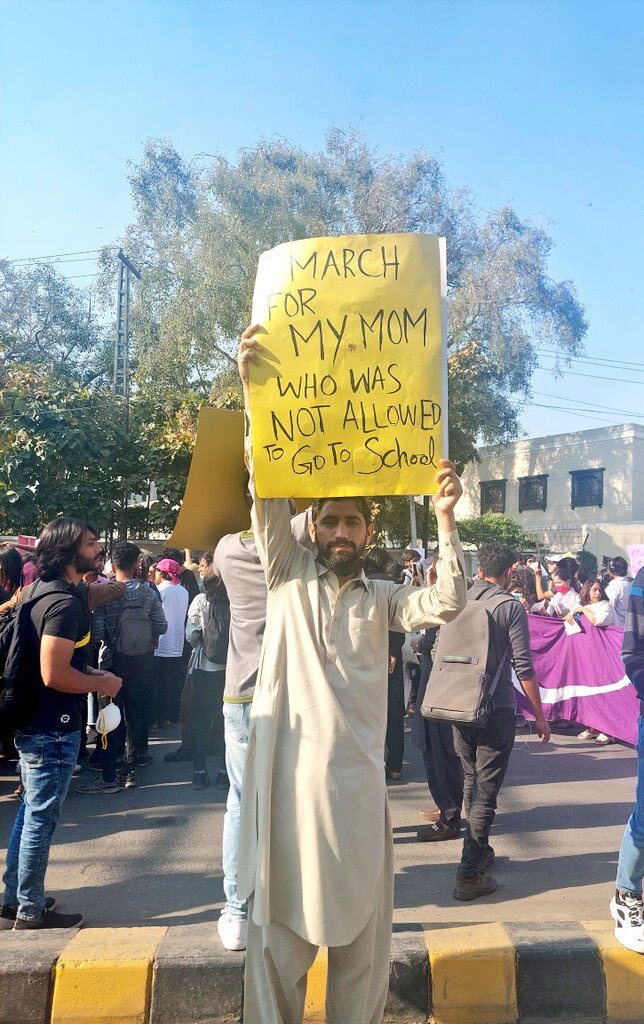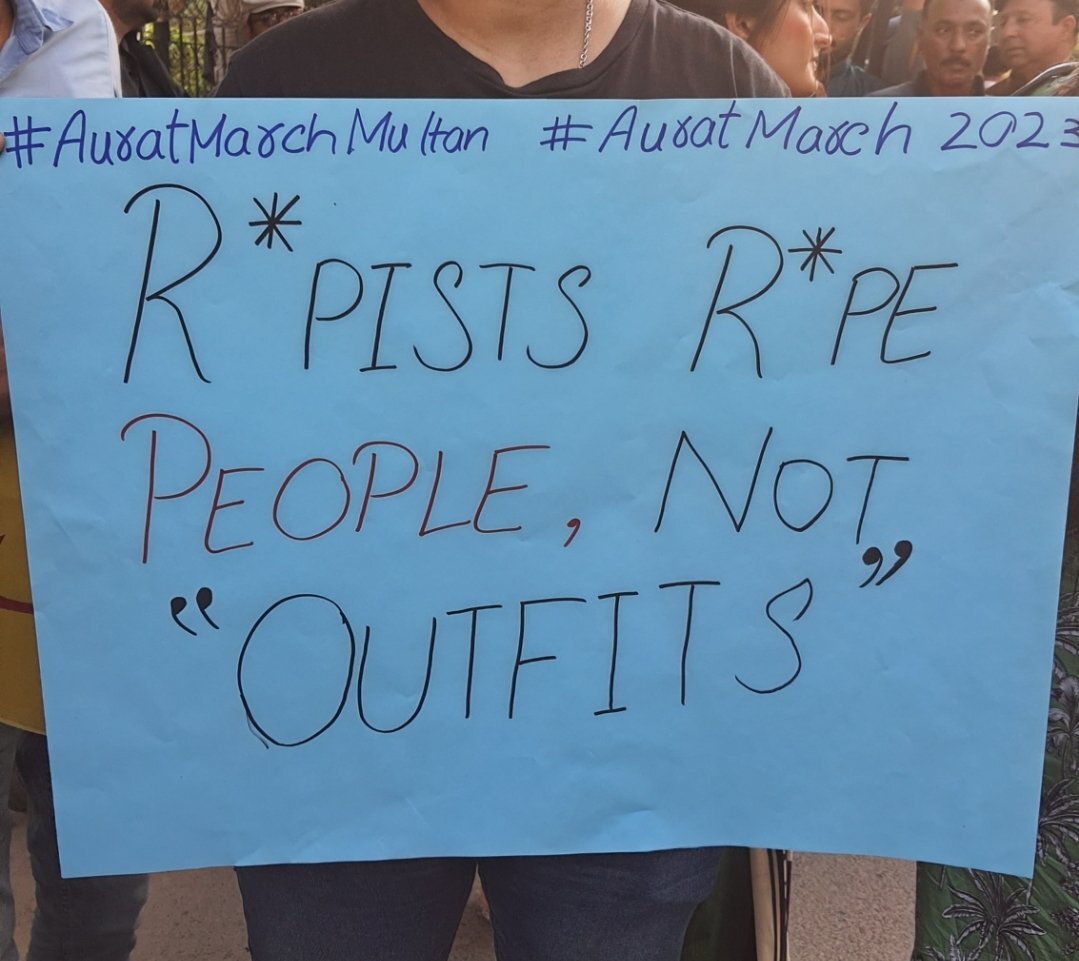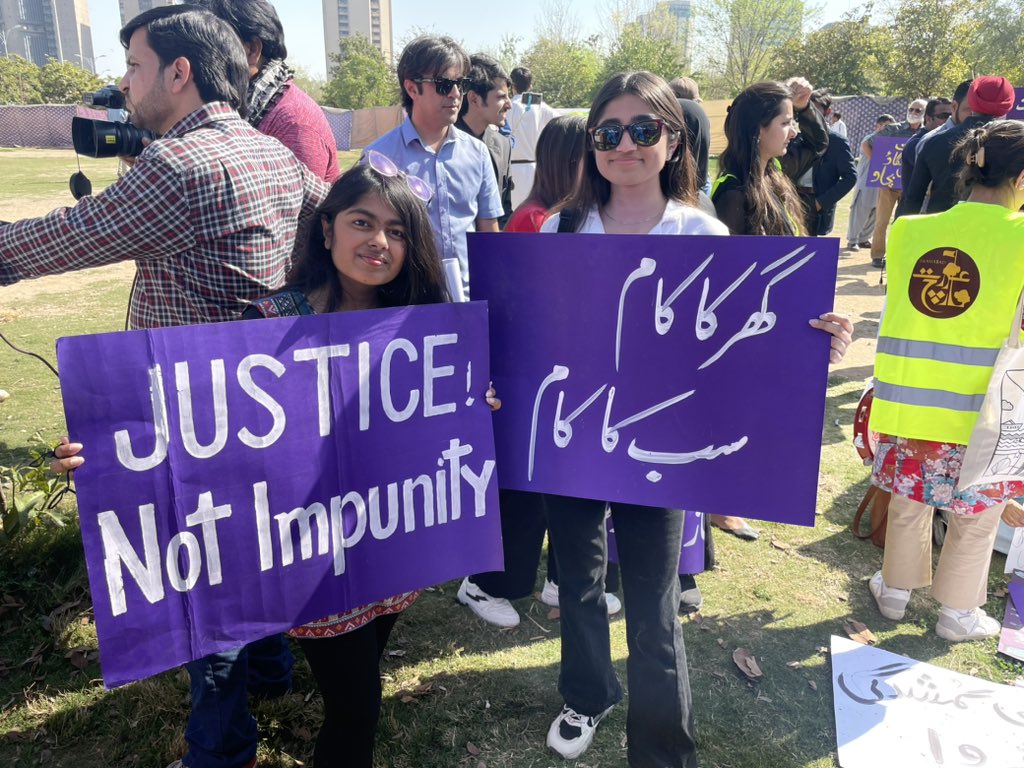Despite hostility towards Aurat March organisers from the city administrations across Pakistan, marginalised groups, including women, transgender people, and their allies marched on International Women’s Day to demand fundamental human rights.
We look at the few placards that caught our attention from the Aurat March across several cities.

Bodily autonomy is one of the fundamental human rights and the foundation for gender equality, however, the Aurat March participants have continuously faced backlash for demanding this fundamental right.
2.

More than one-third of Pakistani girls don’t have access to education and Pakistan often ranks among the worst countries in gender inequality in the education sector.
3.

Baloch women also participated in the march and protested against enforced disappearances amid a rise in alleged abductions of Baloch women by security forces.
4. 
A staggering 32 per cent of women have experienced physical violence in Pakistan and 40 per cent of ever-married women have suffered from spousal abuse. The number is considered much higher than this since domestic abuse cases mostly go unreported in Pakistan due to a lack of awareness among other reasons.
5.

Transgender rights are human rights. There have also been growing instances of politicians and celebrities openly passing discriminatory remarks against the transgender community with the recent amendments to the Transgender Persons (Protection of Rights) Act, 2018, and a murder attempt on Pakistan’s first transgender news anchor Marvia Malik.
6.

Last month, a woman was gang-raped in one of the biggest public parks in Islamabad and was told by her rapist to “not come to the park at this time”. Victim blaming is a major factor that stops rape survivors from reporting the crime.
7.

Housework should be valued and shared by all the members of the house, so we stan this poster.


